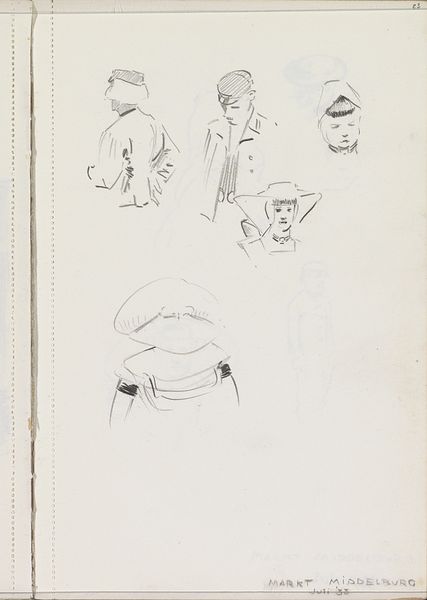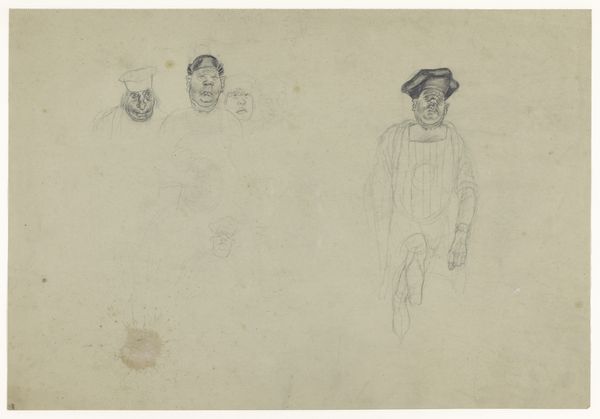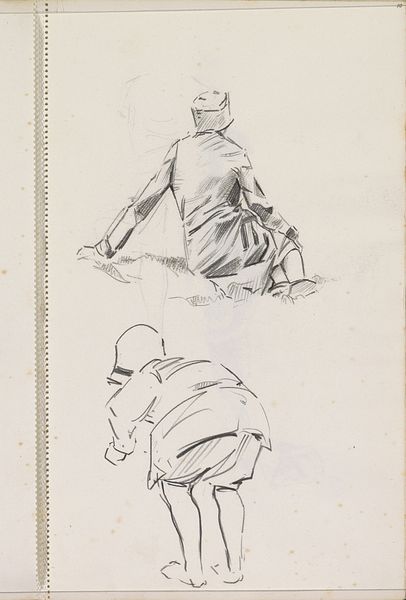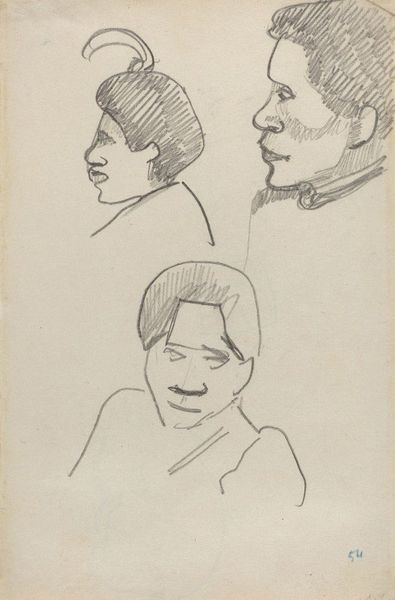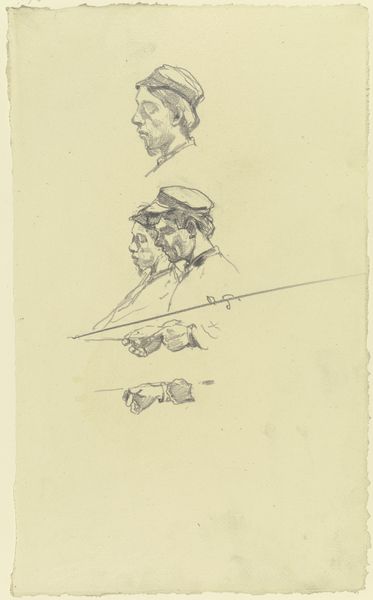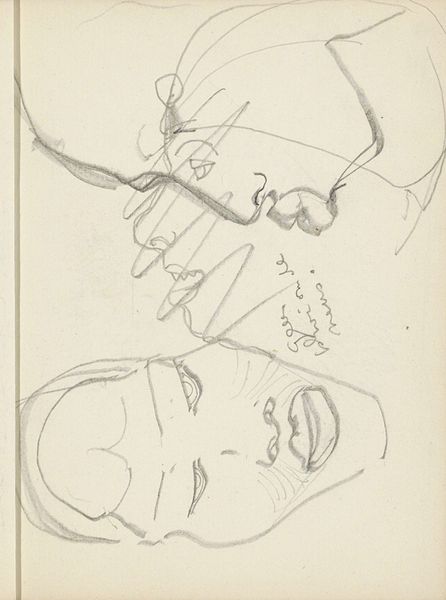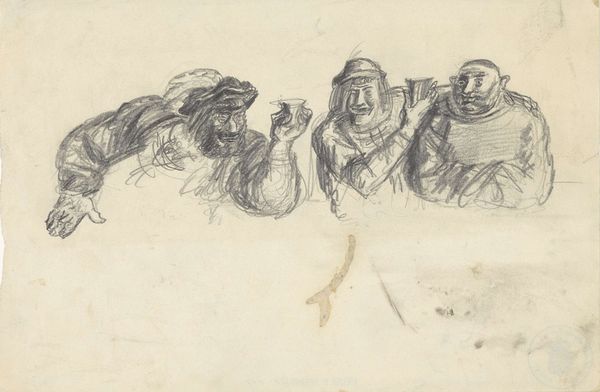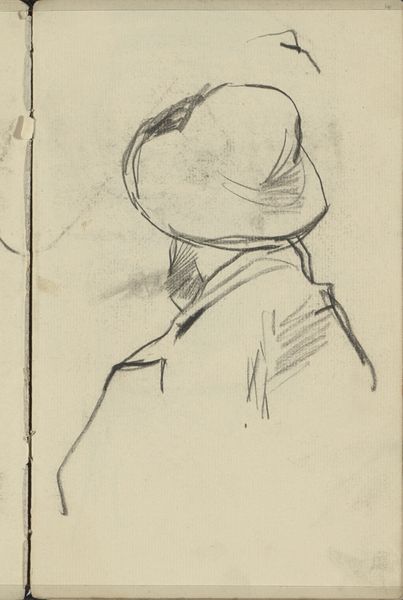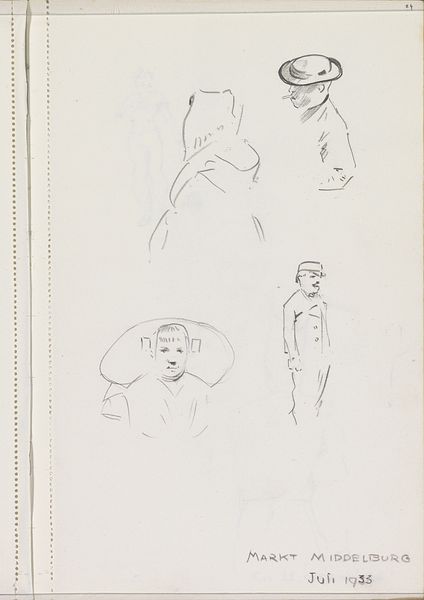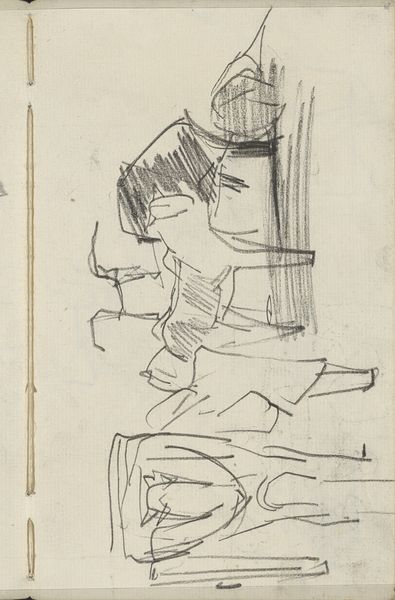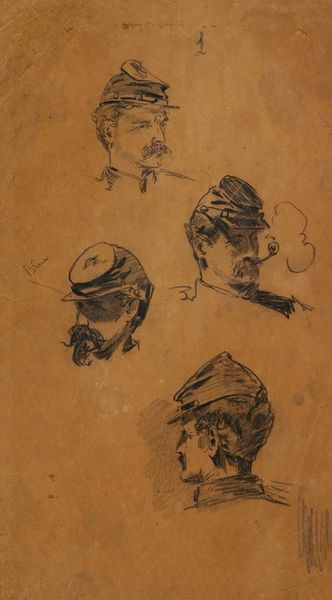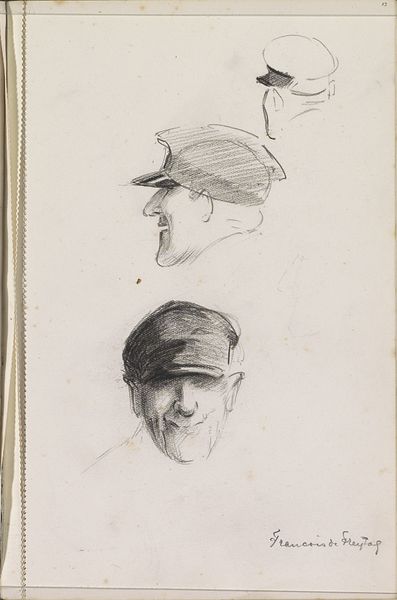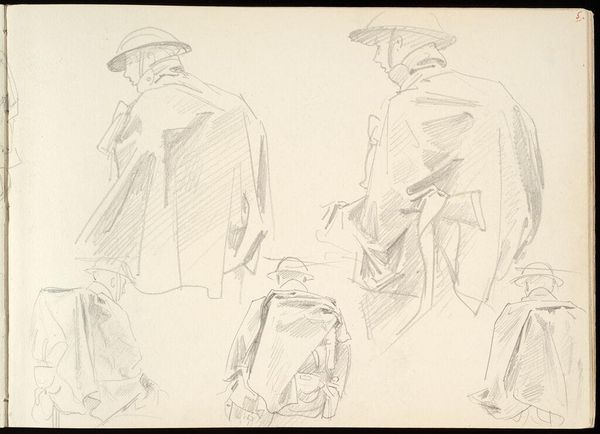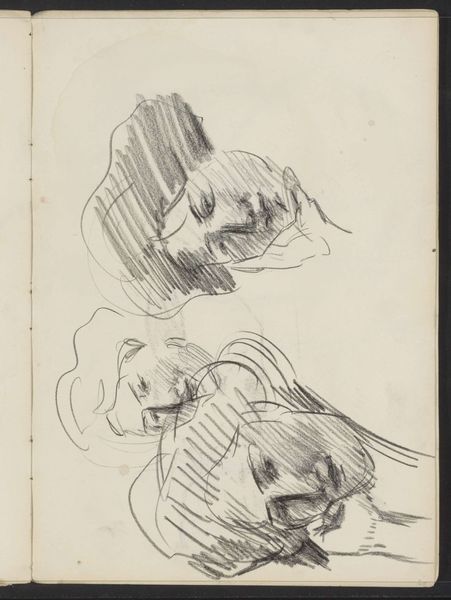
drawing, ink, pencil
#
portrait
#
drawing
#
imaginative character sketch
#
quirky illustration
#
quirky sketch
#
cartoon sketch
#
personal sketchbook
#
ink
#
idea generation sketch
#
ink drawing experimentation
#
sketch
#
pencil
#
sketchbook drawing
#
storyboard and sketchbook work
#
sketchbook art
#
realism
Dimensions: 240 mm (height) x 314 mm (width) (bladmaal)
Editor: This drawing, "Studier af italiensk bondes hoved" or "Studies of an Italian Peasant's Head," created between 1911 and 1915 by Peter Hansen, uses ink and pencil. It looks like a page torn from a sketchbook. What I find most striking is the stark contrast between the rough, almost hurried lines, and the detailed facial expressions. What do you see in this piece? Curator: These “Studies” offer more than just depictions of individual faces; they present an intersection of class, representation, and artistic intent. The concept of the “peasant” was very potent. Hansen's quick sketches might seem like simple observations, but how might they also engage with or even challenge romanticized portrayals of rural life so popular at the time? Editor: I hadn’t thought about it that way. So, you're suggesting these aren't just studies of faces, but maybe a commentary on the artistic conventions of the period? Curator: Exactly. Consider the power dynamics inherent in an artist – presumably from a different social class – depicting working-class subjects. How does Hansen’s style either perpetuate or subvert traditional power dynamics through his choice of representing his subject? Think of the art world’s complicated history in showcasing its subjects. Editor: I guess I had been too focused on just the lines, the artistic technique. Now I'm seeing how that artistic technique also reveals socio-economic dynamics. Curator: The medium itself is part of this narrative. Why sketch these figures? What might be a reading for how ink and pencil allowed for on-the-go or immediate drawings versus fully-finished formal compositions in oils? How do these sketches reveal that complicated intersectional framework between power, gender, class, and race? Editor: I’m beginning to see the depth that's held even within something that looks so simple. Thanks so much! Curator: My pleasure! Remember, the way an artist chooses to represent someone can carry profound political and social implications. Examining art in its context can always reveal new layers.
Comments
No comments
Be the first to comment and join the conversation on the ultimate creative platform.
